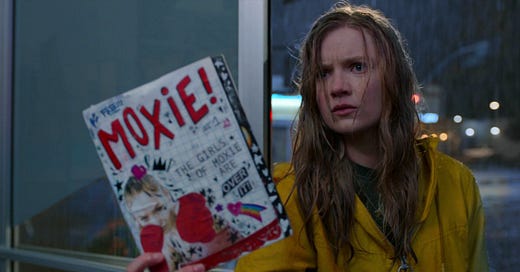watching ‘moxie’ as a childless, 30something queer punk elder
Also: ‘The Real World: Homecoming,’ Kelly Marie Tran, real-life ‘Candyman,’ St. Vincent, #SuperStraight, fighting anti-AAPI hate
Queering the Burbs is a weekly-ish distillation of pop culture, politics and queerness. If you like what you see, please consider subscribing, liking or sharing this essay.
Have I ever mentioned in this space that I’m a through-and-through sucker for the coming-of-age genre? Well, it’s true. Maybe it’s a holdover from my high school days when I was racin…
Keep reading with a 7-day free trial
Subscribe to queering the burbs to keep reading this post and get 7 days of free access to the full post archives.



